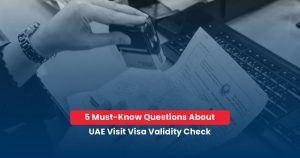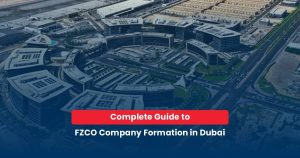In order to set up a business In UAE, first of all, the investor needs to be familiar with various concepts of Mainland, Freezone, and Offshore where each one has its own characteristics, Pros, and Cons. There is the various difference between Mainland Freezone and offshore establishments and when setting up a business in Dubai entrepreneurs must figure out the Most Ideal type of business establishment depending on the priorities of the intended Business. Most Importantly, the investor should have the complete knowledge of 3 jurisdictions on how and on what basis you should decide the most appropriate Jurisdiction. Moving forward, the following details will give a clear view of how the 3 jurisdictions would work.
Mainland
A mainland company could also be called an onshore company which is licensed by the Department of Economic Development (DED) of the relevant emirate, which permits an investor a restriction-free business establishment not only in the local market but also outside the UAE. License for mainland companies provides within each state of choice depending on the business activity. Effective from 1st of June 2021, the UAE government has granted sole proprietorship for the ex-pat (100% ownership by the foreign investors) to mainland companies related to all commercial activities which remove the need of having a Local partner in commercial business establishments.
Free Zone
Overall, there are 40 + free zones in the UAE. Each one is incorporated inside a designated jurisdiction of the particular emirate where the concerned company is permitted to do Free Zone Company Setup in the UAE. Mostly the entrepreneurs, who prefer tax optimization, opt to choose free zone business establishments since the free zone authorities allow various benefits and incentives for setting up businesses. A free zone company could establish its business in the mainland by registering the branch in the DED and Ministry of Economics. But the branch could only continue with the same name of the parent company as well as carry out the same business activity that the parent company was doing
Offshore
Basically, an offshore company formation means a company is established in another jurisdiction while the parent company is situated in another country. This does not operate in a form of a branch company as there won’t be any physical office require or allow under this facility. There is no physical presence within the UAE when it registers as an offshore company. Before entering into any offshore establishment, it is important to know that conversion of an offshore OR free zone company into an onshore company is not possible under any circumstance. Offshore Free Zone Companies got over all different legal documentation, status, and applicable regulations. Moving on to the differences, Pros, and Cons between these three jurisdictions below chart would give a better understanding.
Difference between Mainland Freezone and Offshore Companies in the UAE
| Mainland | Freezone | Offshore | |
|---|---|---|---|
Ownership |
Unlike before, foreign investors establishing commercial companies in the mainland can hold 100% ownership now. | In Free zone companies, no such restrictions are imposing therefore an ex-pat can hold 100% shares of the company. This means neither the local partner nor a service agent requires in order to establish a business |
An ex-pat is allowed to hold complete ownership of the company. But An an offshore company is not allow to have a physical presence within UAE |
Office Space |
It is mandatory to have office space ( EJARI purpose) for mainland with a minimum of 200 sq. |
Not mandatory to have a physical office space & can establish the company with a virtual office either | Not allowed to have a physical office inside UAE. They could only have a physical office outside UAE |
Business Scope |
A company established in the mainland is restriction-free and allowed to do business anywhere in the UAE regardless of whether it is Free zone or main Land |
When it comes to the Free Zone setup, it is usually not allowed to carry out businesses (both manufacturing/ selling) outside the free zone. | Offshore companies are restricted from doing business inside the UAE and are free to do their business outside UAE. |
Audit |
In mainland companies, it is a must to Prepare an audit by end of the financial Year | All FZ companies do not require auditing unless the said entity is in a need of mandatory audit of accounts. | The audit is not a mandatory requirement and it is discretionary |
Visas |
Depending on the size of the premises, Visas will be allow | 1 to 6 visas will be allowed depending on your preference to choose how many Visas you need | Since physical office space does not permit, Visas too would not be issued under offshore |
Capital requirement |
Minimum capital investment has to be shown only for the sake of paperwork which is a very investor-friendly process. | In Free zone businesses, there will be a minimum capital determine by which Emirate the company is established | There is no minimum capital requires in offshore company formations in UAE |
Govt Authorities for Company setup |
They need to seek permission from various authorities such as DED, Dubai Municipality Etc. | Every free zone has its own set of rules and regulations relevant to the particular jurisdiction and activity, | Offshore business formations allow in Jebel Ali (JAFZA), Ras al Khaimah (RAK), and Ajman. The concerned free zone authority of that jurisdiction will do their approvals |
Cost of Company Set up |
Professional License starts from 17,000 AED. Commercial License starts from 14,000 AED | It Starts from 5,750 AED | Starts from 7,000 AED |
✉ info@businesslinkuae.com | www.businesslinkuae.com | +971-556070118 | ☎+971-43215227



